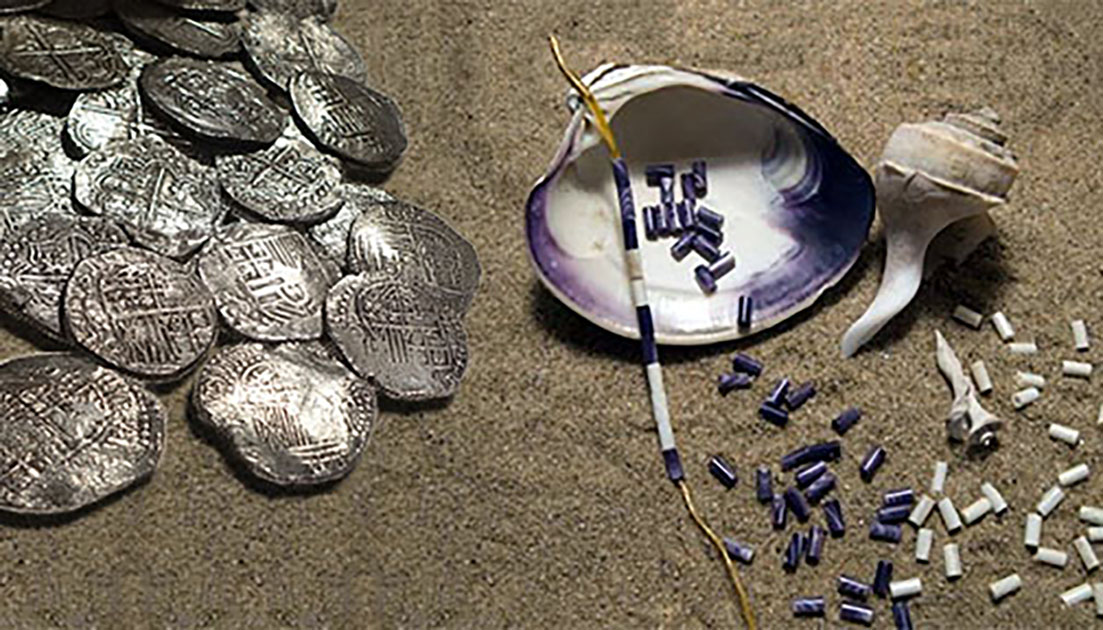
- This event has passed.
After Wampum, the Evolution of Money in Colonial America

with Peter Fay
How did money evolve? In Das Kapital Karl Marx says commodities emerged in early societies: “where communities have their boundaries, at their points of contact with othercommunities.” Money then “comes to be attached either to the most important articles of exchange from outside… or to the object of utility which forms the chief element of indigenous alienable wealth.”
Did this evolution also occur on boundaries of later empires? We will travel back in time to colonial New England and New York to closely examine Marx’s views on money at the periphery of the British empire. Scarcity of British currency forced many commodities toward the role of “universal equivalent”: Indian corn, tobacco, pieces of eight. But it was colonial thirst for luxury commodities like beaver pelts that finally drove an explosive growth in the one money-commodity facilitating that trade: wampum.
All traditions in this world became inverted: Indigenous nations who dominated the wealth in wampum and fur were soon its slave. Wampum had opposite meanings to different actors speaking a polyglot of Algonquian or European tongues. To Narragansettpeople it was a symbol of great spiritual power to bond tribes in fealty. To European fur traders it was a debaser of tribal customs to foster commodity production. To Puritan governors it was a ransom from tribes for penalties and treaties. But to all it was an indispensable bond, constantly evolving and expanding, without which society would unravel.
 For twenty years, PETER FAY has researched history across dozens of archives, participating in public art and historical projects as a Marxist public historian at universities, libraries, and public forums across New England. He uncovered never-before known histories of Black and Indigenous Revolutionary War veterans, early millworkers, and mariners, during the transformation of enslaved labor to wage slavery in Rhode Island.
For twenty years, PETER FAY has researched history across dozens of archives, participating in public art and historical projects as a Marxist public historian at universities, libraries, and public forums across New England. He uncovered never-before known histories of Black and Indigenous Revolutionary War veterans, early millworkers, and mariners, during the transformation of enslaved labor to wage slavery in Rhode Island.
Peter is a co-founder of the Newport Middle Passage Project, the Jamestown Friends of Black History and sits on the Board of the Jamestown Historical Society. Earlier he held leadership positions in the labor movement in steel, electrical, and health care. He retired after a 30-year career in software engineering in commercial and educational institutions, most recently at Brown University.
Pictured above: European and indigenous fur traders in North America (Fadden, 1777, Wikimedia Commons)
